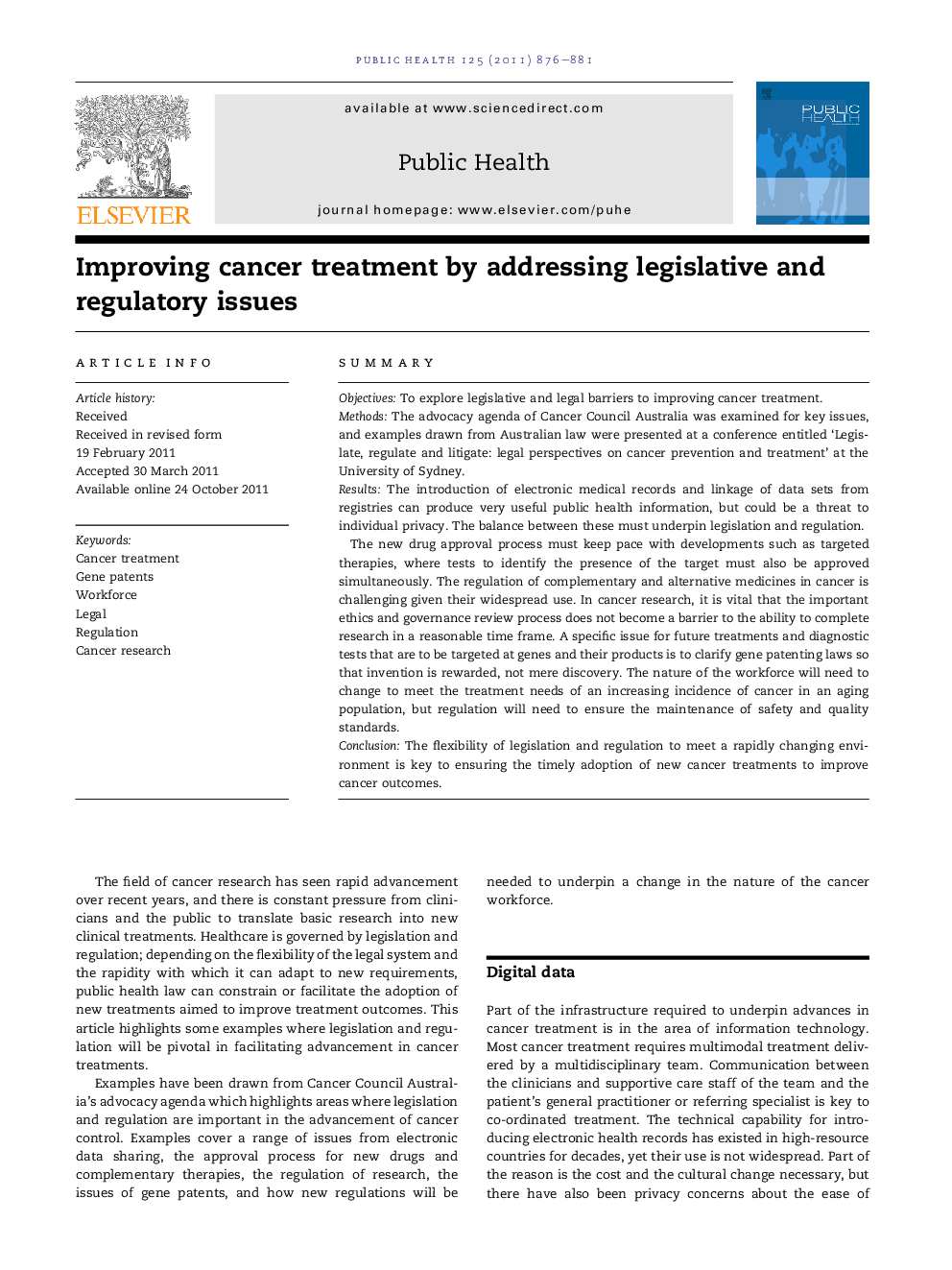| Article ID | Journal | Published Year | Pages | File Type |
|---|---|---|---|---|
| 1087698 | Public Health | 2011 | 6 Pages |
SummaryObjectivesTo explore legislative and legal barriers to improving cancer treatment.MethodsThe advocacy agenda of Cancer Council Australia was examined for key issues, and examples drawn from Australian law were presented at a conference entitled ‘Legislate, regulate and litigate: legal perspectives on cancer prevention and treatment’ at the University of Sydney.ResultsThe introduction of electronic medical records and linkage of data sets from registries can produce very useful public health information, but could be a threat to individual privacy. The balance between these must underpin legislation and regulation.The new drug approval process must keep pace with developments such as targeted therapies, where tests to identify the presence of the target must also be approved simultaneously. The regulation of complementary and alternative medicines in cancer is challenging given their widespread use. In cancer research, it is vital that the important ethics and governance review process does not become a barrier to the ability to complete research in a reasonable time frame. A specific issue for future treatments and diagnostic tests that are to be targeted at genes and their products is to clarify gene patenting laws so that invention is rewarded, not mere discovery. The nature of the workforce will need to change to meet the treatment needs of an increasing incidence of cancer in an aging population, but regulation will need to ensure the maintenance of safety and quality standards.ConclusionThe flexibility of legislation and regulation to meet a rapidly changing environment is key to ensuring the timely adoption of new cancer treatments to improve cancer outcomes.
